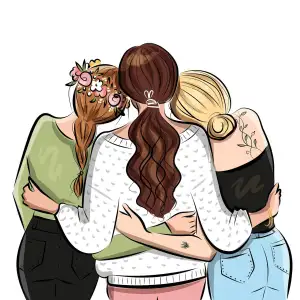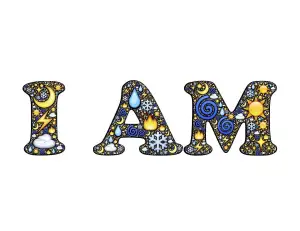Black Women Tattoos: Inking a New Narrative on Skin

Black Women and Tattoo Culture
For generations, tattoos have been more than just body art in many Black cultures – they’ve been powerful symbols of lineage, spirituality, and resistance. Sadly, mainstream tattoo culture hasn't always reflected or celebrated this rich history. Thankfully, that’s changing. Black women are reclaiming their narrative in the tattoo world, both as artists and as canvases.
We’re seeing a surge in Black women embracing tattoos that honor their heritage. Think Adinkra symbols from West Africa, intricate patterns inspired by traditional textiles, or powerful imagery of Black historical figures. These tattoos aren't just fashion statements; they're bold declarations of identity, pride, and resilience.
But it's not just about the imagery. Black women are also challenging the industry from within. Talented Black female tattoo artists are gaining well-deserved recognition, creating welcoming spaces that cater to melanated skin. They're experts in understanding the nuances of tattooing darker skin tones, ensuring vibrant and long-lasting results.
This movement is about visibility and representation. For a long time, the tattoo world often showcased a limited range of skin tones and styles. Now, Black women are changing the face of tattoo culture, celebrating the beauty and diversity of Black skin, and inspiring others to embrace their own personal narratives through ink.
Skin Tone and Tattoo Artistry
For decades, the tattoo industry primarily catered to lighter skin tones. Finding an artist skilled in tattooing darker skin was a challenge. Thankfully, the industry is evolving. More artists are educating themselves on the nuances of working with melanin-rich skin. This includes understanding how different colors show up, the importance of needle depth, and the healing process.
Black women are embracing body art as a powerful form of self-expression. From intricate designs celebrating African heritage to delicate florals and meaningful symbols, tattoos are a way to reclaim their bodies and narratives. However, it's crucial to find an artist who understands the intricacies of tattooing on darker skin.
An experienced artist will know that certain colors pop more vibrantly on deeper tones. For example, jewel tones like emerald green, sapphire blue, and ruby red often stand out beautifully. White ink can be used for highlights and details, creating a striking contrast. Black ink, while classic, requires a skilled hand to avoid appearing muddy or ashy on darker skin.
Beyond color selection, a knowledgeable artist will adjust their technique. Needle depth is crucial. Going too deep can lead to scarring or ink migration, while too shallow won't properly implant the ink. Aftercare is equally important. Darker skin is prone to keloids, so following proper healing instructions is essential for optimal results.
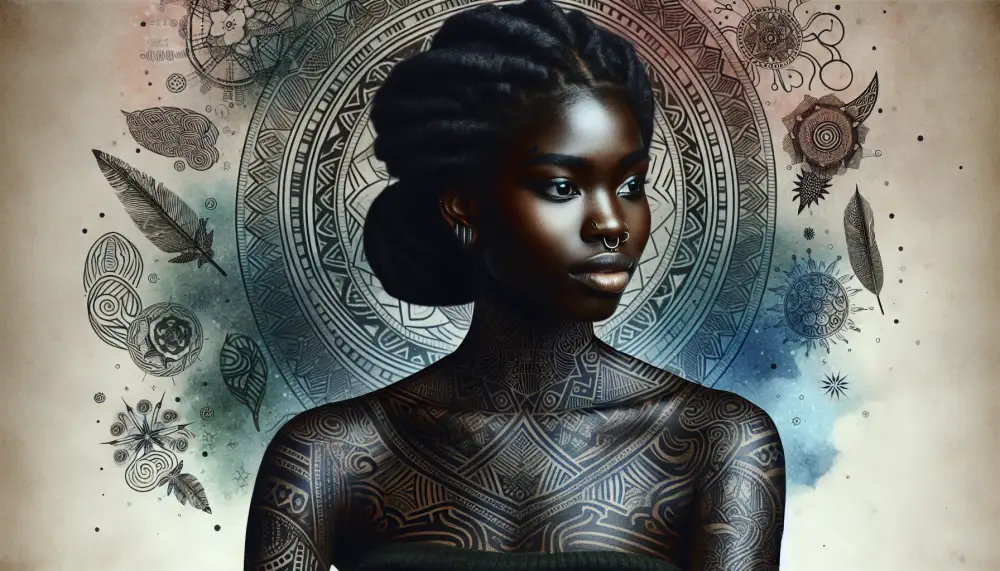
Finding a tattoo artist who understands and celebrates the beauty of black skin is paramount. Don't hesitate to ask for their portfolio, specifically showcasing their work on darker skin tones. Communication is key. Share your vision, ask questions, and ensure you feel comfortable and confident in their abilities. Remember, your body is a canvas, and you deserve an artist who will treat it with the respect and skill it deserves.
Popular Tattoo Choices
Black women are embracing their individuality and cultural heritage through meaningful tattoos. Geometric patterns inspired by African tribal art are visually striking and represent strength, heritage, and spirituality. Floral designs, particularly hibiscus, lotus, and roses, are popular for their beauty and symbolism. Hibiscus represents passion and femininity, while the lotus symbolizes resilience and spiritual growth. Minimalist tattoos, often featuring delicate lines and simple symbols, offer a subtle yet stylish way to express oneself. Script tattoos allow for powerful messages, quotes, or names to be permanently etched onto the skin. Portraits of influential figures, loved ones, or even self-portraits are a beautiful way to pay homage and celebrate Black beauty. Animal imagery, such as lions, elephants, and butterflies, holds deep meaning. Lions represent strength and courage, elephants symbolize wisdom and family, and butterflies signify transformation and freedom. Abstract designs offer a unique and personal form of expression, allowing for interpretations based on individual experiences and perspectives. Ultimately, the most popular tattoo choices for Black women are those that resonate with their personal stories, beliefs, and aspirations.
Meaning and Symbolism
For Black women, tattoos are far more than decorative embellishments. They are powerful statements of identity, resilience, and heritage. Each tattoo tells a story, reflecting personal journeys, cultural pride, or ancestral connections.
The significance of these tattoos is amplified by the historical and societal context. For centuries, Black women have been subjected to oppressive systems that sought to erase their individuality and control their bodies. Tattoos become a reclaiming of that power, a defiant act of self-expression on their own terms.
Popular motifs like Adinkra symbols, originating from Ghana, connect Black women to their African roots. Each symbol carries deep meaning, representing concepts like strength, unity, or hope. Similarly, images of powerful Black figures, both historical and contemporary, serve as reminders of resilience and inspire future generations.
Natural elements like flowers, particularly the lotus, hold profound symbolism. The lotus, rising from muddy waters to bloom in beauty, embodies growth, overcoming adversity, and spiritual enlightenment. These themes resonate deeply with the Black female experience, reflecting their strength and ability to thrive despite challenges.
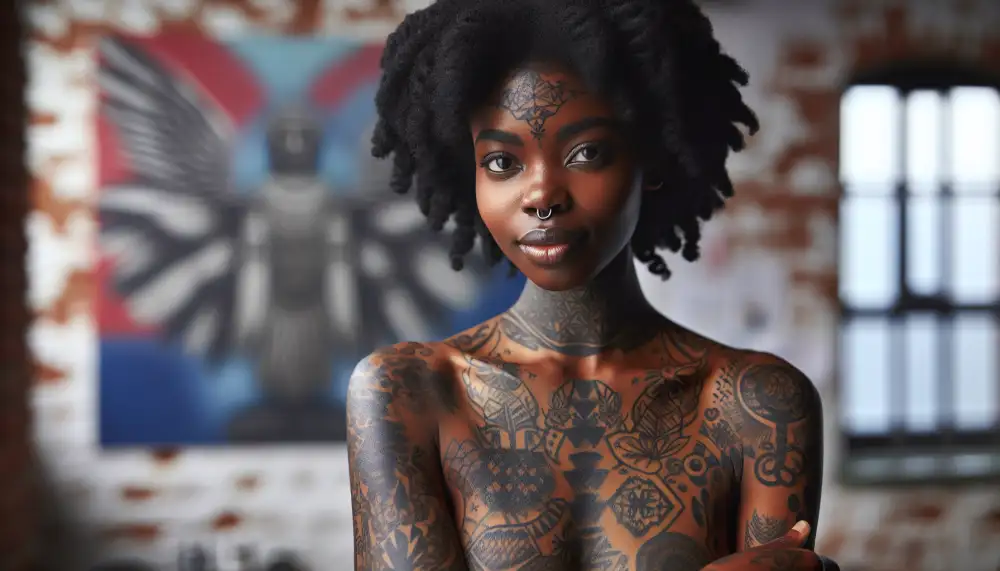
Ultimately, tattoos on Black women are a celebration of their multifaceted identities. They are a visual language, communicating strength, beauty, resilience, and an unbreakable connection to their heritage.
Overcoming Stereotypes
For many years, tattoos on Black women have been unfairly stereotyped. Often viewed through a narrow lens, these powerful expressions of individuality were frequently misinterpreted. Black women with tattoos were often perceived as unprofessional, rebellious, or even intimidating. These stereotypes, rooted in racism and sexism, completely disregarded the rich history and cultural significance of body art within many communities of color.
Thankfully, the tide is turning. As society progresses, we're witnessing a celebration of Black women on their own terms – tattoos and all. This shift allows for a deeper understanding of the art form as a means of self-expression, empowerment, and reclaiming narratives. The intricate designs, meaningful symbols, and powerful statements inked onto their skin tell stories of heritage, resilience, and personal journeys.
From honoring their ancestry with traditional African symbols to celebrating their femininity with delicate floral designs, Black women are challenging the old narratives and writing their own. They are reclaiming their bodies and using tattoos as a powerful tool to express their individuality, creativity, and strength.
For many years, tattoos on Black women have been unfairly stereotyped. Often viewed through a narrow lens, these powerful expressions of individuality were frequently misinterpreted. Black women with tattoos were often perceived as unprofessional, rebellious, or even intimidating. These stereotypes, rooted in racism and sexism, completely disregarded the rich history and cultural significance of body art within many communities of color.
Thankfully, the tide is turning. As society progresses, we're witnessing a celebration of Black women on their own terms – tattoos and all. This shift allows for a deeper understanding of the art form as a means of self-expression, empowerment, and reclaiming narratives. The intricate designs, meaningful symbols, and powerful statements inked onto their skin tell stories of heritage, resilience, and personal journeys.
From honoring their ancestry with traditional African symbols to celebrating their femininity with delicate floral designs, Black women are challenging the old narratives and writing their own. They are reclaiming their bodies and using tattoos as a powerful tool to express their individuality, creativity, and strength.
Body Positivity and Self-Love
For Black women, tattoos can be a powerful declaration of self-love and body positivity in a society that often critiques their bodies. They reclaim their bodies and narratives by adorning themselves with ink. Each tattoo becomes a testament to their resilience, a celebration of their heritage, or simply an expression of personal style.
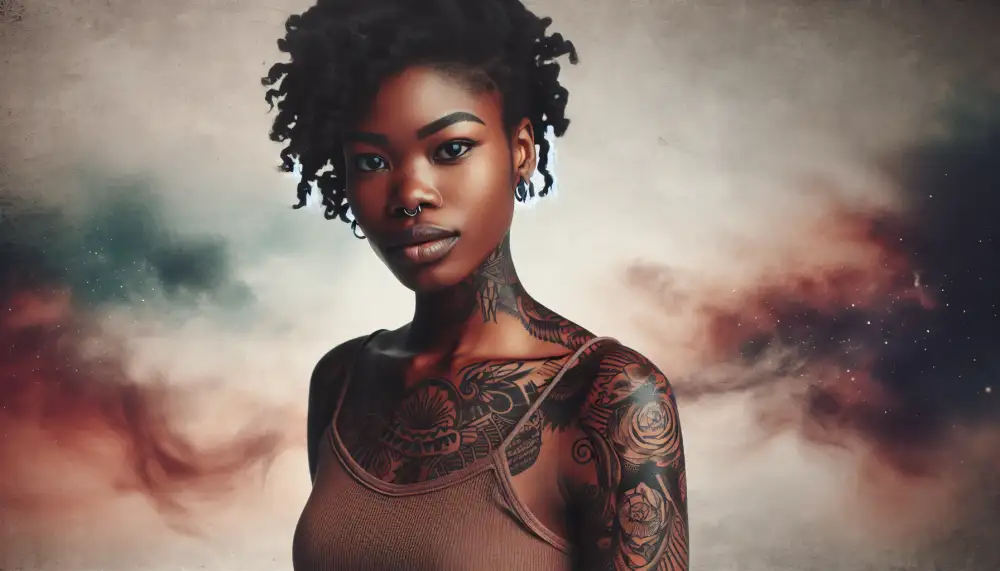
Darker skin tones often require tattoo artists to possess a specific skill set, understanding how different pigments react. This has led to a rise in Black tattoo artists who are not only skilled in their craft but also offer a space of understanding and cultural sensitivity for Black women seeking to get inked. These artists often specialize in techniques that best complement darker skin, celebrating the beauty of melanin and showcasing the artistry of tattoos on Black skin.
The visibility of Black women with tattoos in media, fashion, and entertainment further amplifies this movement. They challenge conventional beauty standards and redefine what it means to be beautiful, powerful, and comfortable in their own skin. This representation matters, inspiring others to embrace their bodies and adorn themselves in ways that resonate with their souls.
Tattoo Aftercare for Melanin
Tattoo aftercare is crucial for everyone, but for those with melanin-rich skin, there are unique considerations. Darker skin tones have a higher risk of developing keloids, which are raised scars that grow beyond the boundaries of the initial wound. While keloids aren't specific to tattoos, the repeated trauma of tattoo needles can increase the risk. Keeping your tattoo clean and moisturized is essential to prevent infection and promote healing. However, avoid harsh soaps and lotions that contain fragrances or alcohol, as these can irritate the skin and potentially lead to hyperpigmentation (darkening of the skin).
Sun exposure can fade tattoo ink and potentially cause hyperpigmentation on healing skin. Protect your tattoo from the sun's harmful UV rays by wearing sunscreen with an SPF of 30 or higher, even on cloudy days. Remember, proper aftercare is an ongoing process. Continue to moisturize your tattoo regularly and avoid scratching or picking at the area. Be patient, as it can take several weeks or even months for your tattoo to fully heal. If you notice any signs of infection, such as redness, swelling, or pus, contact your doctor or a dermatologist immediately.
Finding the Right Tattoo Artist
Finding the right tattoo artist is crucial for anyone, but it's especially important for Black women. Our skin tones and textures are unique and require an artist with specific knowledge and experience. Don't be afraid to ask for an artist who specializes in tattooing on darker skin tones. They'll understand how ink reacts with melanin-rich skin and can advise you on the best placement, design, and color choices. Look at their portfolio. Many artists now have online portfolios showcasing their work. Pay close attention to how they've worked with a variety of skin tones, especially darker ones. Don't hesitate to ask for references or testimonials from previous Black clients. A skilled artist will understand the importance of representation and be happy to connect you with others who can speak to their experience. Communication is key throughout the entire process. Clearly articulate your vision, including the style, size, and placement of your tattoo. A good artist will listen attentively, ask clarifying questions, and offer their professional opinion while respecting your ideas. Remember, getting a tattoo is a personal and often empowering experience. Take your time, do your research, and choose an artist who makes you feel comfortable, respected, and confident in their abilities.
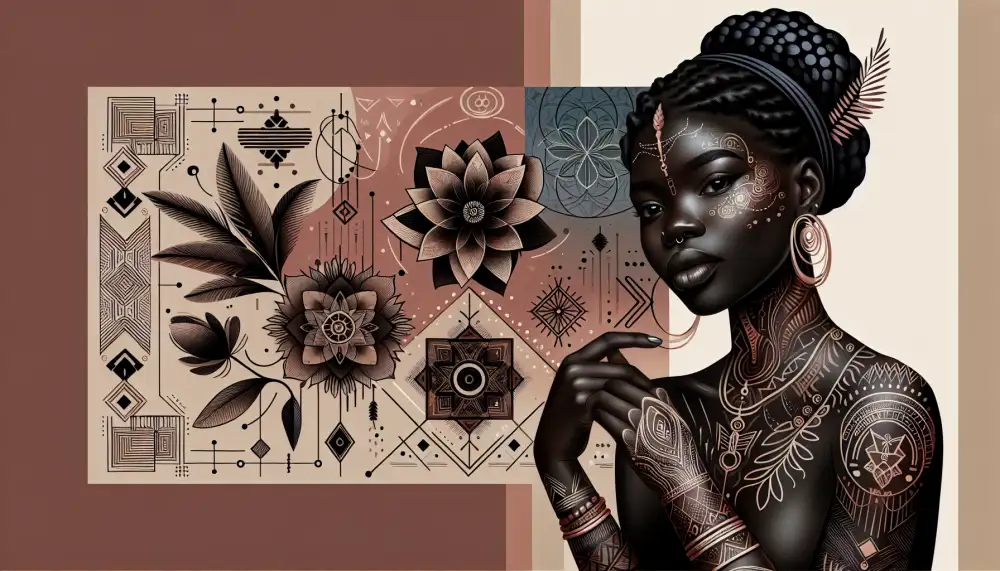
Celebrating Individuality and Beauty
For Black women, tattoos are more than just body art. They're powerful statements of individuality, resilience, and beauty. For generations, societal standards have often excluded and marginalized Black women, dictating how they should look and present themselves. Tattoos offer a way to reclaim their bodies and narratives, celebrating their heritage, passions, and personal journeys.
The rich melanin in Black skin provides a unique canvas for tattoo artistry. Bold, intricate designs pop beautifully against darker skin tones, showcasing the skill and creativity of both the artist and the wearer. From traditional African symbols to modern minimalist designs, Black women are embracing a wide range of tattoo styles, pushing boundaries and redefining beauty standards.
These tattoos often serve as a source of empowerment. They can be a visual representation of overcoming adversity, celebrating personal growth, or honoring cultural heritage. Each tattoo carries a story, a testament to the strength and resilience inherent in Black womanhood.
Moreover, the growing visibility of Black women with tattoos in media and popular culture is challenging stereotypes and broadening the definition of beauty. By proudly displaying their ink, Black women are encouraging self-love, self-expression, and acceptance, inspiring others to embrace their authentic selves.
Black Women Tattoo Artists to Follow
Black women have been reclaiming their bodies and expressing themselves through the art of tattooing for generations. From intricate designs that celebrate their heritage to bold statements that challenge societal norms, these artists are making their mark on the industry and inspiring a new generation of ink lovers. Finding an artist who understands how ink lays on darker skin tones can be a journey. But these talented Black women tattoo artists are true masters of their craft, creating stunning works of art on canvases of all shades. They are known for their attention to detail, their ability to bring their clients' visions to life, and their commitment to creating a safe and inclusive space for everyone.
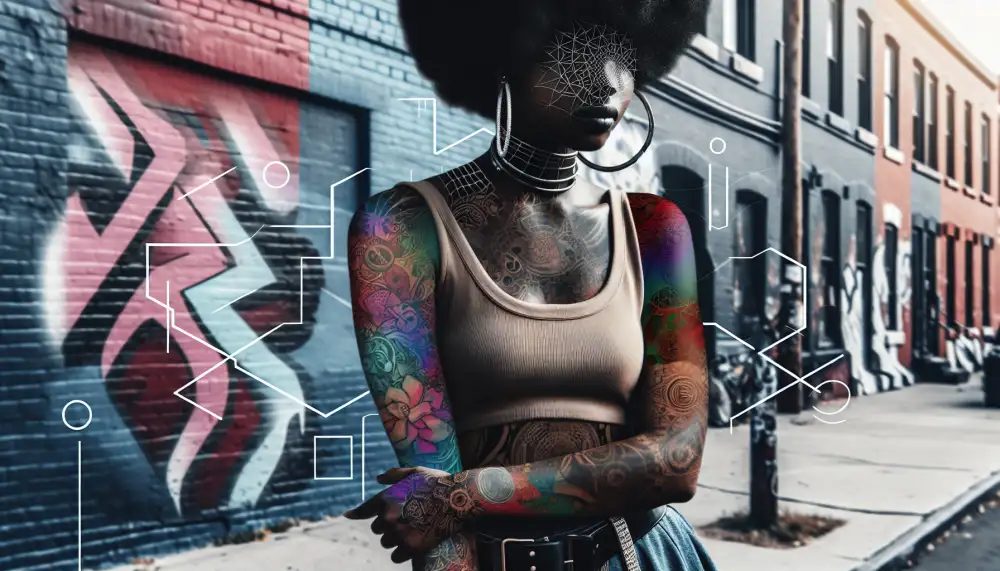
These artists specialize in a variety of styles, so you're sure to find one whose aesthetic speaks to you. Whether you're looking for a delicate floral design, a powerful portrait, or an abstract piece, these artists will create a tattoo that you'll cherish for a lifetime. Many Black tattoo artists are inspired by their heritage and culture, and their work often reflects this. They are breaking down barriers and paving the way for other aspiring artists.
Check out their Instagrams to explore the world of ink and find your next favorite artist. Follow their journeys, support their businesses, and get ready to be inspired by their incredible talent.
Published: 30. 06. 2024
Category: Food

